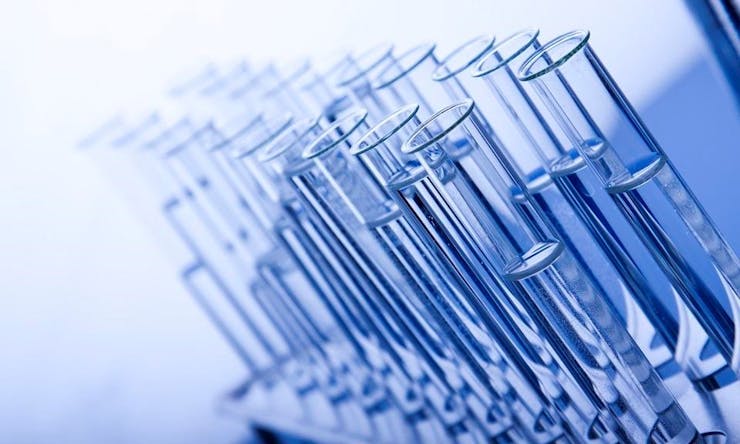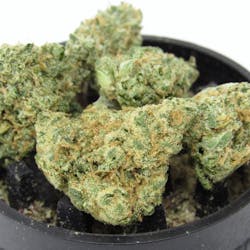As the medical and recreational cannabis markets continue their steady climb toward legitimacy, the demand for lab-tested products climbs alongside it. Cannabis testing is the scientific process of measuring different chemicals and compounds in the product. They can measure beneficial constituents like cannabinoids and terpenes, or not-so-desirable contaminants such as pesticides, mold, and residual solvents.
Research is now showing that strains exhibit different compound profiles, unique “fingerprints” built by a specific composition of cannabinoids and terpenes. Below, get to know some of the compounds measured in cannabis testing, and learn more about why testing is important in this guide.
Cannabinoids
THC (∆9-Tetrahydrocannabinol)
- Strongly psychoactive (induces a euphoric high)
- Most cannabis strains are bred to contain a high THC content while other cannabinoids occur only in trace amounts
- Demonstrates promise in treating pain, nausea, sleep and stress disorders, and appetite loss
- Can cause anxiety and paranoia in some individuals
- Boiling point: 315 °F (157 °C)
THCV (Tetrahydrocannabivarin)
- Strongly psychoactive (induces a euphoric high)
- More strongly psychoactive than THC, but duration of effects is about half as long
- Typically occurs in only trace amounts in cannabis
- Pronounced energetic effects
- Found to effectively counter anxiety, stress, and panic disorders without suppressing emotion
- Reduces tremors associated with Alzheimer’s, Parkinson’s, and other neurological disorders
- Diminishes appetite
- Stimulates bone growth
CBD (Cannabidiol)
- Non-psychoactive (does not induce a euphoric high)
- Counteracts psychoactivity of THC
- Calming effect helpful for those treating anxiety and sleep loss
- Lowers blood sugar
- Demonstrates promise in treating pain, multiple sclerosis, inflammation, stress disorders, and epilepsy
- Boiling point: 356 °F (180 °C)
CBDV (Cannabidivarin)
- Non-psychoactive (does not induce a euphoric high)
- Demonstrates promise in treating seizures
CBG (Cannabigerol)
- Non-psychoactive (does not induce a euphoric high)
- Typically occurs in only trace amounts in cannabis
- Found to stimulate brain cell and bone growth
- Demonstrates promise as an anti-bacterial and anti-insomnia medicine
CBC (Cannabichromene)
- Non-psychoactive (does not induce a euphoric high)
- Typically occurs in only trace amounts in cannabis
- Found to be about 10 times more effective than CBD in treating anxiety and stress
- Anti-inflammatory and anti-viral properties
- Stimulates bone growth
- Boiling point: 428 °F (220 °C)
CBN (Cannabinol)
- Mildly to non-intoxicating (does not induce a euphoric high)
- Typically occurs in only trace amounts in cannabis
- Occurs as a result of THC degradation
- Most sedating of all the cannabinoids
- Demonstrates promise in treating insomnia, glaucoma, and pain
- Boiling point: 365 °F (185 °C)
Terpenes
Linalool
- Floral aroma
- Also found in lavender, citrus, rosewood, coriander, and laurels
- Anti-insomnia, anti-psychotic, anti-epileptic, anti-anxiety, and painkilling properties
- Boiling point: 388 °F (198 °C)
Caryophyllene
- Rich, spicy aroma
- Also found in Thai basil, cloves, and black pepper
- Anti-septic, anti-bacterial, anti-fungal, and anti-inflammatory properties
- Boiling point: 320 °F (160 °C)
Myrcene
- Also found in mango, hops, bay leaves, lemongrass, and eucalyptus
- Sedating, relaxing effects
- Demonstrates promise in treating spasms, inflammation, pain, and insomnia
- Reduces resistance across the blood-brain barrier which facilitates access of other chemicals
- Enhances psychoactive effects of other compounds such as THC
- Boiling point: 334 °F (168 °C)
Limonene
- Bitter citrus aroma
- Also found in fruit rinds, rosemary, juniper, and peppermint
- Demonstrates promise in treating gastric reflux, fungus, depression, and anxiety
- Boiling point: 349 °F (176 °C)
- Learn more about limonene and its benefits
Pinene
- Sweetpine aroma
- Also found in pine needles, rosemary, basil, parsley, and dill
- Demonstrates promise in treating asthma and inflammation
- Boiling point: 311 °F (155 °C)
- Learn more about pinene and its benefits
Humulene
- Aroma similar to hops
- Also found in hops and coriander
- Anti-bacterial and anti-inflammatory properties
- Diminishes appetite
- Boiling point: 388 °F (198 °C)
Terpinolene
- Woody, smoky aroma
- Also found in apples, cumin, tea-tree, lilacs, and conifers
- Anti-fungal, anti-bacterial, and anti-insomnia
Phytol





